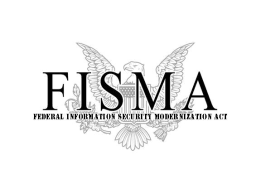FISMA

Summary
The Federal Information Security Management Act (FISMA) was originally passed in 2002 as part of the Electronic Government Act. FISMA defines a framework of guidelines and security standards to protect government information and operations. FISMA requires all federal agencies to develop, document and implement agency-wide information security programs. NIST SP 800-53 serves as the primary resource that federal agencies use to implement the security controls required by FISMA. The IDs for these controls correspond to those of the NIST 800-53 standard. The version used for this section is NIST 800-53, Rev. 5, September 2020.
Definitions

Free trial
Search for vulnerabilities in your apps for free with Fluid Attacks' automated security testing! Start your 21-day free trial and discover the benefits of the Continuous Hacking Essential plan. If you prefer the Advanced plan, which includes the expertise of Fluid Attacks' hacking team, fill out this contact form.